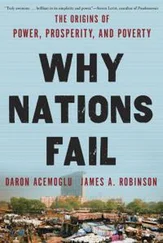Adam Smith - Wealth of Nations
Здесь есть возможность читать онлайн «Adam Smith - Wealth of Nations» — ознакомительный отрывок электронной книги совершенно бесплатно, а после прочтения отрывка купить полную версию. В некоторых случаях можно слушать аудио, скачать через торрент в формате fb2 и присутствует краткое содержание. Жанр: unrecognised, на английском языке. Описание произведения, (предисловие) а так же отзывы посетителей доступны на портале библиотеки ЛибКат.
- Название:Wealth of Nations
- Автор:
- Жанр:
- Год:неизвестен
- ISBN:нет данных
- Рейтинг книги:4 / 5. Голосов: 1
-
Избранное:Добавить в избранное
- Отзывы:
-
Ваша оценка:
- 80
- 1
- 2
- 3
- 4
- 5
Wealth of Nations: краткое содержание, описание и аннотация
Предлагаем к чтению аннотацию, описание, краткое содержание или предисловие (зависит от того, что написал сам автор книги «Wealth of Nations»). Если вы не нашли необходимую информацию о книге — напишите в комментариях, мы постараемся отыскать её.
Adam Smith's masterpiece, first published in 1776, is the foundation of modern economic thought and remains the single most important account of the rise of, and the principles behind, modern capitalism. Written in clear and incisive prose, The Wealth of Nations articulates the concepts indispensable to an understanding of contemporary society.
Wealth of Nations — читать онлайн ознакомительный отрывок
Ниже представлен текст книги, разбитый по страницам. Система сохранения места последней прочитанной страницы, позволяет с удобством читать онлайн бесплатно книгу «Wealth of Nations», без необходимости каждый раз заново искать на чём Вы остановились. Поставьте закладку, и сможете в любой момент перейти на страницу, на которой закончили чтение.
Интервал:
Закладка:
Table of Contents
Wealth of Nations
Adam Smith
Introduction and plan of the work
Part 1 Of the Causes of Improvement in the productive Powers of Labour, and of the Order according to which its Produce is naturally distributed among the different Ranks of the People
Chapter 1 Of the Division of Labour
Chapter 2 Of the Principle which gives Occasion to the Division of Labour
Chapter 3 That the Division of Labour is limited by the Extent of the Market
Chapter 4 Of the Origin and Use of Money
Chapter 5 Of the real and nominal Price of Commodities, or of their Price in Labour, and their Price in Money
Chapter 6 Of the component Parts of the Price of Commodities
Chapter 7 Of the natural and market Price of Commodities
Chapter 8 Of the Wages of Labour
Chapter 9 Of the Profits of Stock
Chapter 10 Of Wages and Profit in the different Employments of Labour and Stock
Chapter 11 Of the Rent of Land
1. First Period
2. Second Period
3. Third Period
4. First Sort
5. Second Sort
6. Third Sort
7. Conclusion of the chapter
Part 2 Of the Nature, Accumulation, and Employment of Stock
Chapter 1 Of the Division of Stock
Chapter 2 Of Money considered as a particular Branch of the general Stock of the Society, or of the Experience of maintaining the National Capital
Chapter 3 Of the Accumulation of Capital, or of productive and unproductive Labour
Chapter 4 Of Stock lent at Interest
Chapter 5 Of the different Employment of Capitals
Part 3 Of the different Progress of Opulence in different Nations
Chapter 1 Of the Natural Progress of Opulence
Chapter 2 Of the Discouragement of Agriculture in the ancient State of Europe after the Fall of the Roman Empire
Chapter 3 Of the Rise and Progress of Cities and Towns, after the Fall of the Roman Empire
Chapter 4 How the Commerce of the Towns contributed to the Improvement of the Country
Part 4 Of Systems of political Economy
Chapter 1 Of the Principle of the commercial, or mercantile System
Chapter 2 Of Restraints upon the Importation from foreign Countries of such Goods as can be produced at Home
Chapter 3 Of the extraordinary Restraints upon the Importation of Goods of almost all Kinds, from those Countries with which the Balance is supposed to be disadvantageous
1. Of the Unreasonableness of those Restraints even upon the Principles of the Commercial System
2. Of the Unreasonableness of those extraordinary Restraints upon other Principles
Chapter 4 Of Drawbacks
Chapter 5 Of Bounties
Chapter 6 Of Treaties of Commerce
Chapter 7 Of Colonies
1. Of the Motives for establishing new Colonies
2. Causes of Prosperity of New Colonies
3. Of the Advantages which Europe has derived from the Discovery of America, and from that of a Passage to the East Indies by the Cape of Good Hope
Chapter 8 Conclusion of the Mercantile System
Chapter 9 Of the Agricultural Systems, or of those Systems of Political Economy, which represent the Produce of Land, as either the sole or the principal Source of the Revenue and Wealth of every Country
Part 5 Of the Revenue of the Sovereign or Commonwealth Chapter 1 Of the Expences of the Sovereign or Commonwealth
1. Of the Expense of Defence
2. Of the Expense of Justice
3. Of the Expense of Public Works and Public Institutions
4. Of the Expense of Supporting the Dignity of the Sovereign
5. Conclusion
Chapter 2 Of the Sources of the general or public Revenue of the Society
1. Of the Funds or Sources of Revenue which may peculiarly belong to the Sovereign or Commonwealth
2. Of Taxes
Chapter 3 Of public Debts
AUDIO BOOK
Wealth of Nations
Adam Smith
Published:1776 Categorie(s):Non-Fiction, Social science, Political science, Science and Technics, Science
Introduction and plan of the work
The annual labour of every nation is the fund which originally supplies it with all the necessaries and conveniencies of life which it annually consumes, and which consist always either in the immediate produce of that labour, or in what is purchased with that produce from other nations.
According, therefore, as this produce, or what is purchased with it, bears a greater or smaller proportion to the number of those who are to consume it, the nation will be better or worse supplied with all the necessaries and conveniencies for which it has occasion.
But this proportion must in every nation be regulated by two different circumstances: first, by the skill, dexterity, and judgment with which its labour is generally applied; and, secondly, by the proportion between the number of those who are employed in useful labour, and that of those who are not so employed. Whatever be the soil, climate, or extent of territory of any particular nation, the abundance or scantiness of its annual supply must, in that particular situation, depend upon those two circumstances.
The abundance or scantiness of this supply, too, seems to depend more upon the former of those two circumstances than upon the latter. Among the savage nations of hunters and fishers, every individual who is able to work is more or less employed in useful labour, and endeavours to provide, as well as he can, the necessaries and conveniencies of life, for himself, and such of his family or tribe as are either too old, or too young, or too infirm, to go a-hunting and fishing. Such nations, however, are so miserably poor, that, from mere want, they are frequently reduced, or at least think themselves reduced, to the necessity sometimes of directly destroying, and sometimes of abandoning their infants, their old people, and those afflicted with lingering diseases, to perish with hunger, or to be devoured by wild beasts. Among civilized and thriving nations, on the contrary, though a great number of people do not labour at all, many of whom consume the produce of ten times, frequently of a hundred times, more labour than the greater part of those who work; yet the produce of the whole labour of the society is so great, that all are often abundantly supplied; and a workman, even of the lowest and poorest order, if he is frugal and industrious, may enjoy a greater share of the necessaries and conveniencies of life than it is possible for any savage to acquire.
The causes of this improvement in the productive powers of labour, and the order according to which its produce is naturally distributed among the different ranks and conditions of men in the society, make the subject of the first book of this Inquiry.
Whatever be the actual state of the skill, dexterity, and judgment, with which labour is applied in any nation, the abundance or scantiness of its annual supply must depend, during the continuance of that state, upon the proportion between the number of those who are annually employed in useful labour, and that of those who are not so employed. The number of useful and productive labourers, it will hereafter appear, is everywhere in proportion to the quantity of capital stock which is employed in setting them to work, and to the particular way in which it is so employed. The second book, therefore, treats of the nature of capital stock, of the manner in which it is gradually accumulated, and of the different quantities of labour which it puts into motion, according to the different ways in which it is employed.
Nations tolerably well advanced as to skill, dexterity, and judgment, in the application of labour, have followed very different plans in the general conduct or direction of it; and those plans have not all been equally favourable to the greatness of its produce. The policy of some nations has given extraordinary encouragement to the industry of the country; that of others to the industry of towns. Scarce any nation has dealt equally and impartially with every sort of industry. Since the down-fall of the Roman empire, the policy of Europe has been more favourable to arts, manufactures, and commerce, the industry of towns, than to agriculture, the Industry of the country. The circumstances which seem to have introduced and established this policy are explained in the third book.
Читать дальшеИнтервал:
Закладка:
Похожие книги на «Wealth of Nations»
Представляем Вашему вниманию похожие книги на «Wealth of Nations» списком для выбора. Мы отобрали схожую по названию и смыслу литературу в надежде предоставить читателям больше вариантов отыскать новые, интересные, ещё непрочитанные произведения.
Обсуждение, отзывы о книге «Wealth of Nations» и просто собственные мнения читателей. Оставьте ваши комментарии, напишите, что Вы думаете о произведении, его смысле или главных героях. Укажите что конкретно понравилось, а что нет, и почему Вы так считаете.












